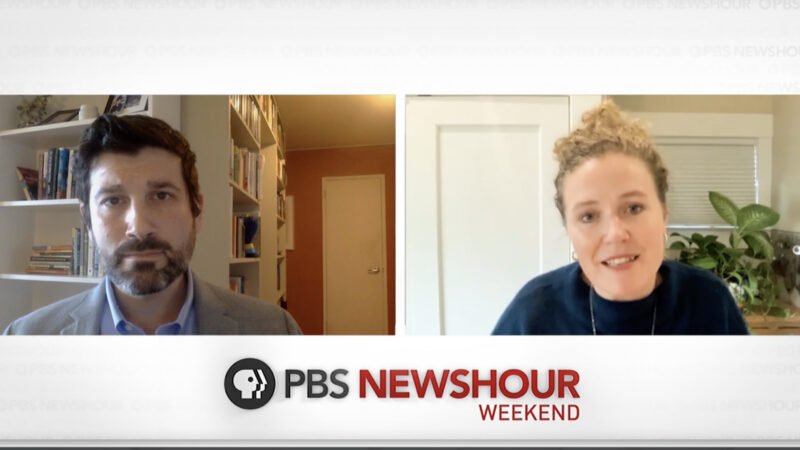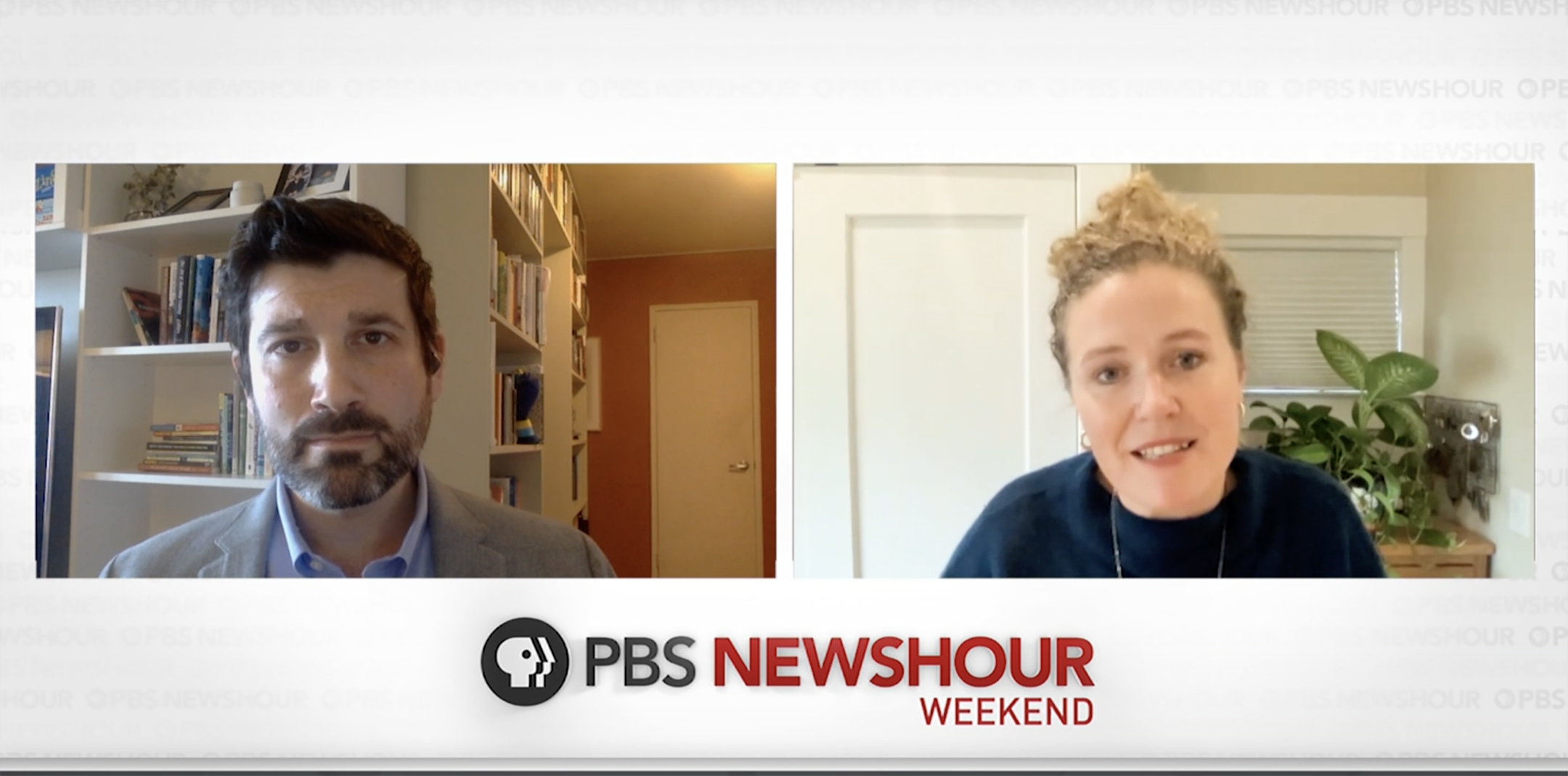In the Media
PBS NEWS HOUR – Monthly checks, child tax credits: What will help end poverty?
01. 09. 2022
NewsHour Weekend’s Zachary Green speaks to Natalie Foster, Co-Chair of the Economic Security Project about cash policies

This interview originally appeared on PBS NewsHour.
Transcript:
- Hari Sreenivasan:For more on guaranteed income, Zachary Green spoke with Natalie Foster, co-chair of the Economic Security Project. The non-profit organization helps fund programs that work to create wage and income equality––and is one of the funders of Aisha Nyandoro’s non-profit, ‘Springboard to Opportunities’.
- Zachary Green:So we just heard Aisha Nyandoro say that if Magnolia Mother’s Trust or any of the other guaranteed income programs that are currently operating in the country now are still around in five years, she would consider that a failure. What do you think of that statement and is there anything happening on the federal level right now that would make programs like Magnolia Mother’s Trust unnecessary?
- Natalie Foster:One thing we know is that cash policies are some of the most efficient and effective ways of helping families when they are struggling. You know, people, almost all Americans experienced a sort of experiment in cash policies through stimulus checks that came to families through expanded unemployment insurance when people lost a job, and through the child tax credit checks, which are basically a guaranteed income for families with children.Unfortunately, it’s all uncertain. People didn’t know when the stimulus checks would come, when they would start and stop. And unfortunately, the child tax credit has just sent out its last check in December of 2021 because of congressional gridlock in Washington, D.C.. So we need to move past the uncertainty and make the child tax credit, which is a guaranteed income for families with children, a permanent part of American social policy.
- Zachary Green:So one thing that we keep hearing is that restrictions within the current social safety net might actually be keeping people within the cycle of poverty rather than helping them pull themselves out of it. Could you tell us why that’s the case? What is it about our current welfare system that might actually be keeping people in poverty?
- Natalie Foster:Well, I’ll first say that our current welfare system is saving people’s lives. It is incredibly important that we have it, but we need to build on it and grow it and create it as a support mechanism for families as we enter these uncertain times, making it so that cash comes with no strings attached so that families can make their own decisions about what they need.
- Zachary Green:So what do you say to people who say that if you take away the restrictions from these welfare programs, then people are just going to spend the money irresponsibly?
- Natalie Foster:These policies are often rooted in racist histories in distrust of families, and they add cruel logistical complexity to people who are just trying to navigate a system, you know, when they are struggling.One of the things we saw coming out of many of the guaranteed income demonstrations are that people spend the money on the basics. They put food on the table. Some families, that’s three meals instead of two. Every family is different. And for every family, it’s important for being able to live the lives of dignity that they deserve.
- Zachary Green:And finally, we’ve looked at guaranteed income programs in Stockton, California, in Hudson, New York, and Gary, Indiana, and San Francisco, where they were dealing with people experiencing homelessness. What do you see as the future for guaranteed income and how do you see guaranteed income being scaled up on a national level? What would the mechanics of that be?
- Natalie Foster:What we’re seeing right now are cities as the laboratories of democracy. We are seeing mayors like Mayor Michael Tubbs in Stockton and community leaders like Dr. Aisha Nyandoro, who are taking up the mantle and saying, this is the future of American social policy, and I will demonstrate what it looks like in my city. We’re seeing dozens of cities across the country demonstrating what a regular monthly support of cash could look like for families.And the results are incredible. People feel less stress. They’re able to work jobs that are meaningful and higher paying in their lives and are able to put food on the table. And I believe that will demonstrate what a federal guaranteed income should look like. But the bottom line is, regular checks that families can count on in this country are how we build back better in America.
- Zachary Green:Natalie Foster of the Economic Security Project. Thanks so much for joining us.
